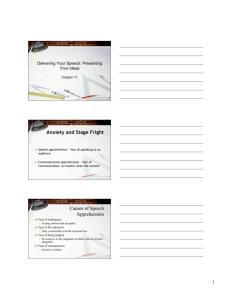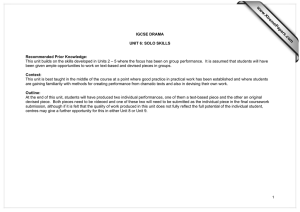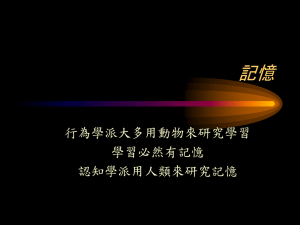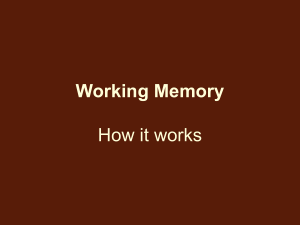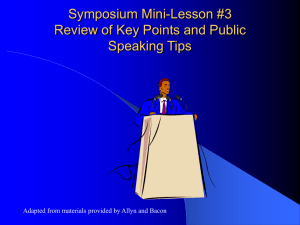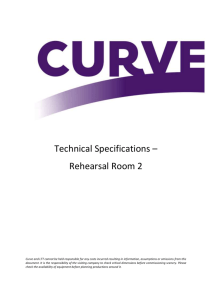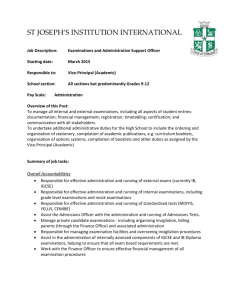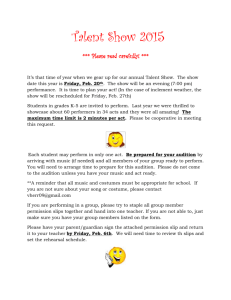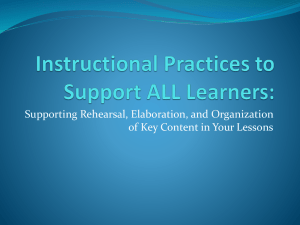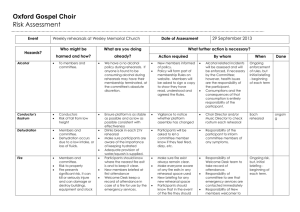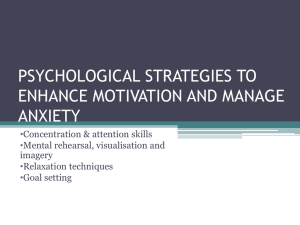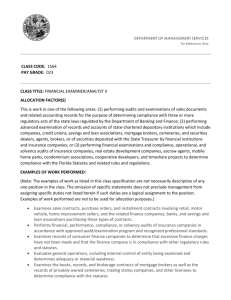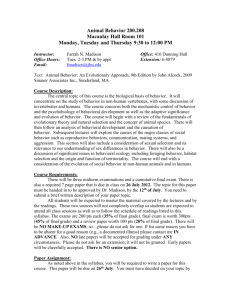Essay type exams - Student Learning Development
advertisement
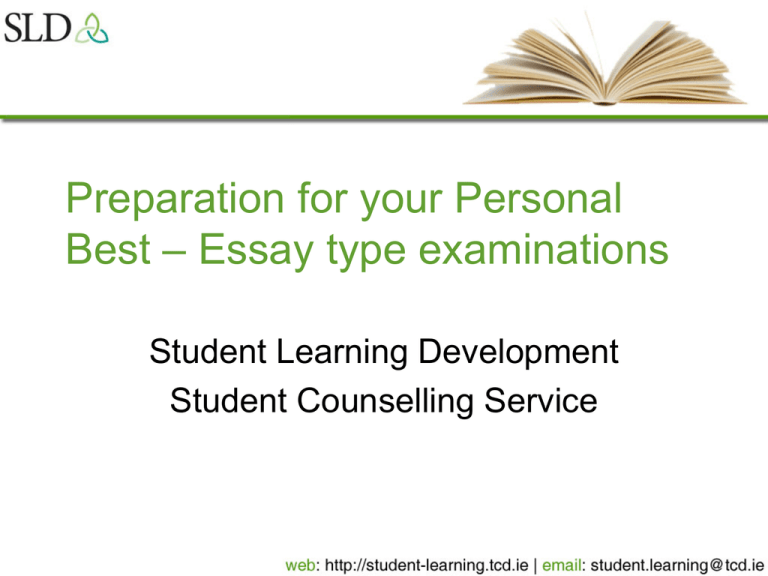
Preparation for your Personal Best – Essay type examinations Student Learning Development Student Counselling Service These notes cover • • • • • • • Examinations as events Answering the question asked Breaking down the examination task Planning your time Rehearsing performance at your personal best. Control of the examination environment Developing strategies and rehearsing techniques for reducing performance anxiety. Examinations as events Sporting Performance Academic Performance Content – physical skills – basic to advanced. Rules of the game Sports Administration Fitness – health, strength, stamina Flexibility/ability to withstand heavy impacts and shock Event = Match Performance rehearsal Content – knowledge – basic to advanced, rules of your discipline, college administration Fitness – health, new knowledge and workload Tolerance of ambiguity more than one right answer/no right answer Event = exam Performance rehearsal One of the most common reasons for exam failure is……………… Not Answering the Question! Demonstrating that you understand the question is the first step in producing an answer. How you structure your answer is as important as what you know More is not necessarily better Build in an introductory paragraph • The introduction is about the question – not the answer • Restate the question in your own words • Find and use the key words • Show that you know what the point of the question is by defining the key words/concepts/theories etc (see handout on key verbs). Study preparation • Generate a list of major topics using your notes and past exam papers. • Create a chart or summary sheet of the main topics and any relationship between themes. • Generate ideas and plan an outline for each question • Follow a structure and review your essays (time spent and quality of your answers) General Issues: Cause: Problems of Industrialization Effect: Progressive Response Social Urbanization Change in family Muckraking – Spargo Settlement House Political Growth of Bossism Muckraking – Baker LaFollete reform Economic Trusts Standard Oil Muckraking – Tarbell Anti-Trust legislation Structure for essay writing Introduction Main body – divided into paragraphs (make point, expand and give evidence) Summary Adapted from: Rosenwasser, David and Jill Stephen. Writing Analytically. 3rd ed. Boston: Heinle/Thompson Learning. Inc, 2003. Seattle University Writing Centre. For more information: Hacker, Diana. A Writers Reference. 5th ed. Boston: Bedford/St. Martin’s, 2003. Budget your time – equal time for equal marks Leave time at beginning (to plan) and end (to check) paper. Question 4 Question 1 Question 2 40 minutes 40 minutes Question 3 40 minutes 40 minutes Planning your paper • Maximum gains for time are in the early stages of your answer • Read all exam questions first • Plan your time and answers in advance • Answer your best question first. • Rehearse producing quality work into time available. Rehearsal techniques for personal best performance • Make part of your study space look like an exam hall. • Have a routine and stick to it. Review your progress regularly. • Use photos, sketches, etc to bring the exam venue into your study space. • Mentally place yourself in the exam when you are rehearsing. Rehearsal techniques for personal best performance Use imagery – every athlete’s personal best performance is in their mind – so is yours. Visualisation, movement, sound, smell etc. Multi modal imagery – combining different senses (listening, talking, imagining) Think positive thoughts and manage stress through breathing and relaxation techniques. Set goals and review your progress regularly. What if it all goes wrong on the day? • Know your potential examination anxiety • Simulate coping with exam anxiety at home • Practice breathing and relaxation techniques and other recovery strategies • Maintain your physical and mental health. Don’t leave your exam performance to chance! • Practice your starting procedures (e.g. reading over paper and being clear about what you are asked to do. • Practice writing full answers using your introductions as a template • Practice past exam questions (timed and un timed) • Mark your own answers as critically as possibly. Summary – the keys to your personal best • • • • • • • • • Preparation Organisation Approach your preparation strategically Active revision Stay focused Structure and content Control Manage your emotional and physical responses Think positively Good luck! from Student Learning Development
